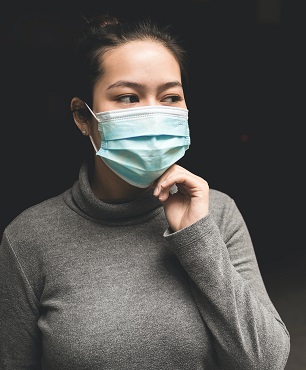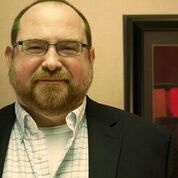Is Your Mask Securely Fastened?
Is Your Mask Securely Fastened?

Before COVID-19 was declared a pandemic, many of us in mental health became aggressively helpful. We gave interviews to media outlets small and large and wrote content for wide distribution. Just before the World Health Organization made its declaration, some of us were already fatigued. We decreased our output and refused interviews. Much like medical experts had exhausted the limits of their advice—keep your social distance, cover your coughs and sneezes, do not touch your face, wash your hands for at least 20 seconds—we’d said all there was to say.
As the pandemic set in, many of us renewed our efforts to blog, vlog, and give interviews. Our advice has become a familiar drone, much like our medical colleagues’—exercise, get enough sleep, eat healthy foods, stay social.
In our blitz to help maintain the mental health of our patients, clients, loved ones, and the general public, are we making sure to take care of ourselves? And are our efforts to help everyone else as effective as possible?
On a fundamental level, the most vital power mental health professionals have is that we—like all those people we’re trying to help—are human. Now, our training is secondary to our ability to empathize with and have compassion for one another. The best way for us to help each other is to follow the same advice we are giving and to avoid giving advice that we cannot follow ourselves. As Eve Rosenfeld, a Ph.D. student at the University of Buffalo, puts it, “We have to practice what we preach.”
First, it’s essential to recognize our reactions to the COVID-19 outbreak. Conversations with colleagues and their behavior on social media indicate the same wide range of responses to the pandemic as you see in the general public. Some of us remain calm and compassionate in our delivery of expert opinions. Others openly express difficult and sometimes overwhelming emotions. Many use distraction—pictures of their kids or their culinary masterpieces or some of the best memes you’ve ever seen—to maintain course through the stormy present. Dr. Rebecca Sachs, a psychologist in private practice in New York, NY, says that her mood has been variable, ranging “from hopeful, loving, compassionate to worried, sad and even angry.” We know that any emotional reaction to the current crisis is valid, whether you are an expert or a layman. Acknowledging our reactions will help us behave effectively in our own lives and give better advice to those who need us.
Next, we must decide how to use these emotions to our advantage. By following our own best advice, we can decide whether or not to give it. Here are some common self-care themes.
Get away from work more frequently than you usually do. Because these times are so strange, our ability to help means that we should be stricter about taking time away from our work. Because helping is almost reflexive, this is incredibly difficult for many of us. “I [felt] an urgency to be of service and do more to support people in need,” said Susan Zinn, a licensed psychotherapist, eating disorder, and trauma specialist in Santa Monica, CA. The COVID-19 situation kicked helpers into overdrive, which means most of us will need to pay more attention than we’d like to our human needs for rest and recreation. Dr. Sachs attends to her health by sometimes saying to others, “I don’t think I can do this right now. I have to take a small break.” As you strive to be helpful, you must frequently ask yourself: am I getting enough sleep? Is what I am eating healthy? What would I like to do right now? Is that work? If so, what can I do instead? Is what I want to do healthy? If so, get to it. Maintaining appropriate harmony between caring for yourself and helping others will enhance your ability to do both of those things.
Remember, you are imperfect. It’s tough not to get caught up in your training and to remember that you are more than your role. Not only does this mean taking frequent time away from helping, but also accepting that your help will be imperfect. No one is an expert in the psychological toll that the COVID-19 crisis will take. You must forgive yourself for that.
Ask for help if you need it. Many of us cannot even acknowledge that we’re having painful reactions to this crisis, which makes asking for help nearly impossible. But we cannot encourage others to seek appropriate help if we will not look for it ourselves. This crisis presents us with unprecedented opportunities, including the chance to say to a trusted colleague, “This is too much for me. I need help.” In doing this, we gain invaluable perspective.
Our most important work will come when the COVID-19 crisis ends. If we give and follow effective advice, we’ll be ready for that, as will those who need our help.
Acknowledgement: Beyond her help in proofreading and editing, Meredith Owens, Ph.D., ABPP, a psychologist treating anxiety on Long Island, has promised to help the writer adhere to his own advice.












